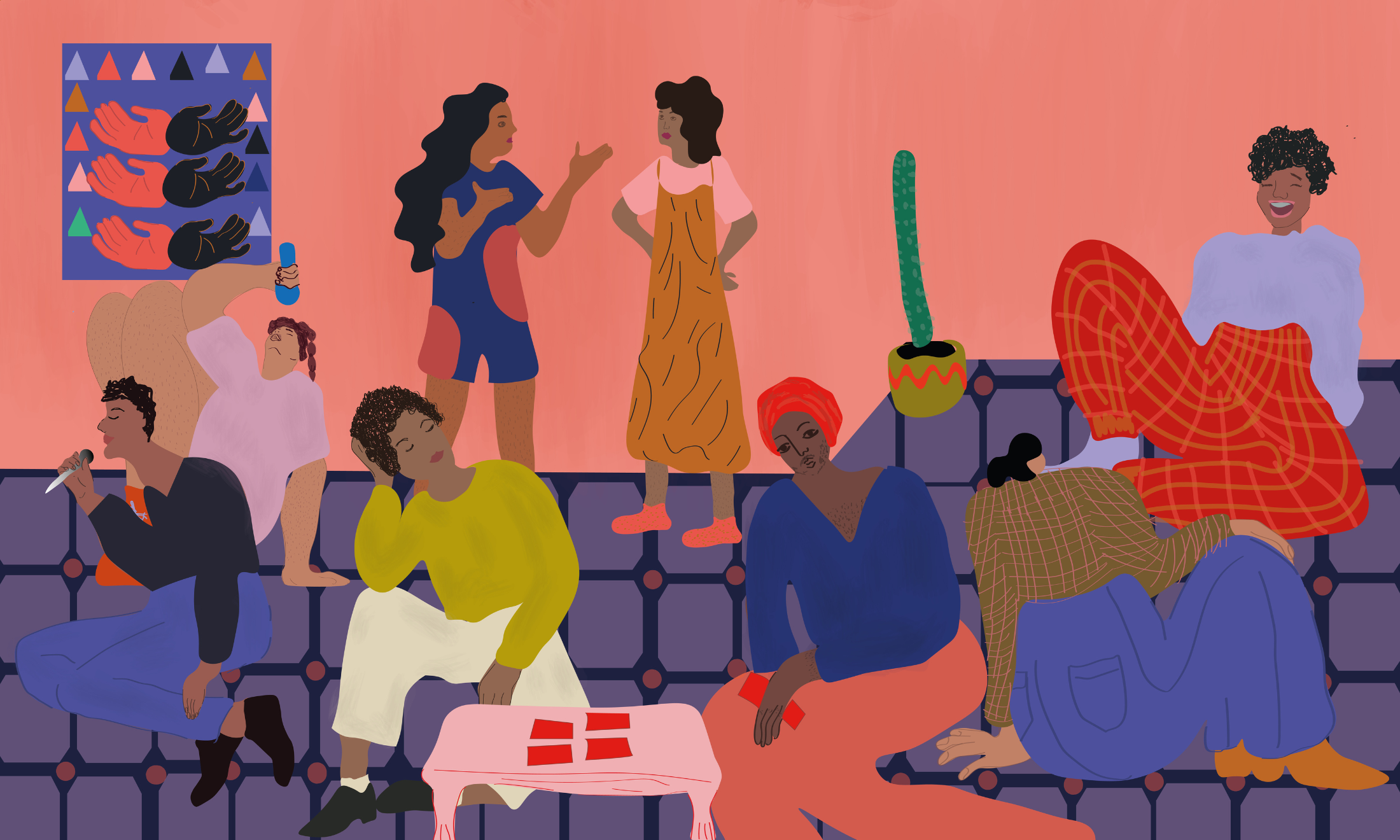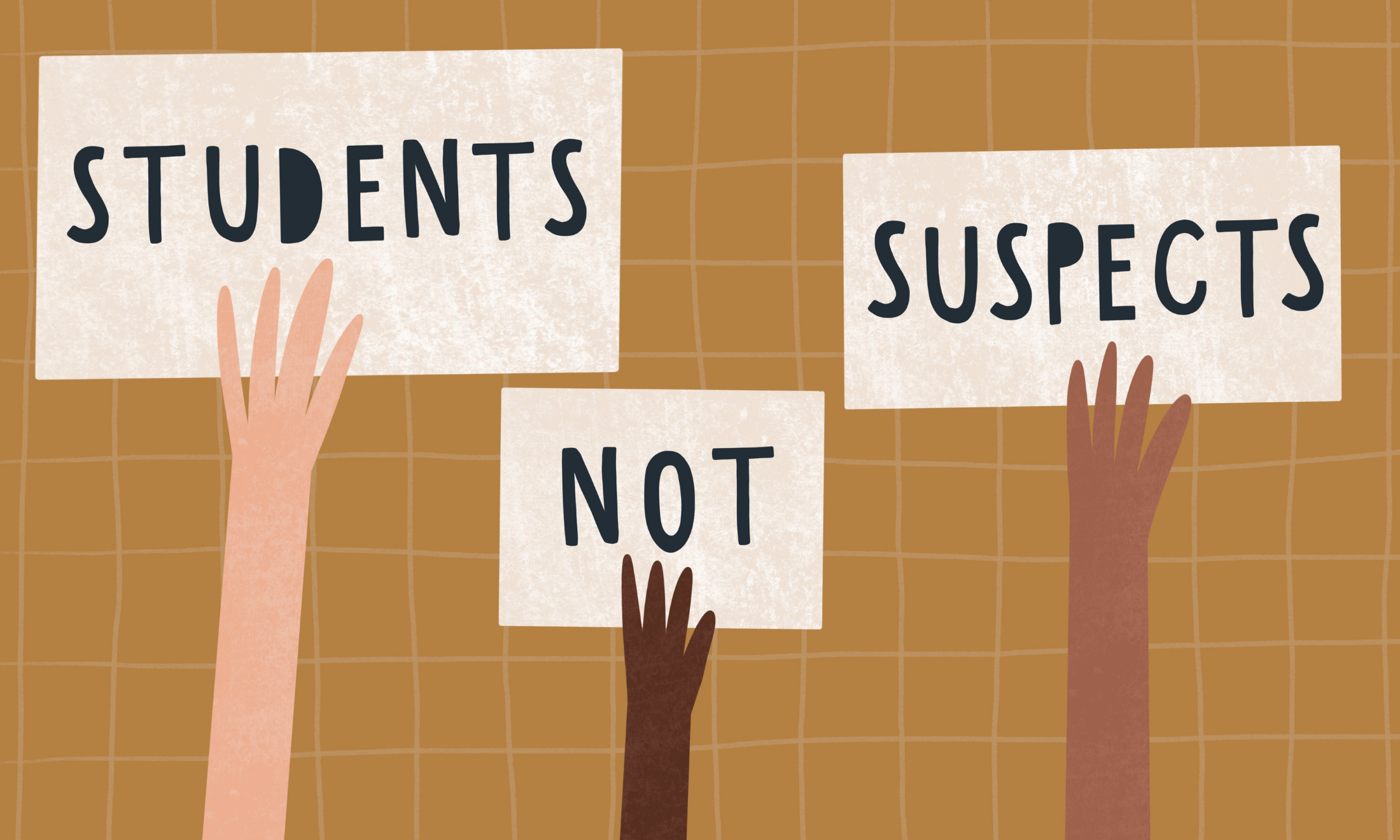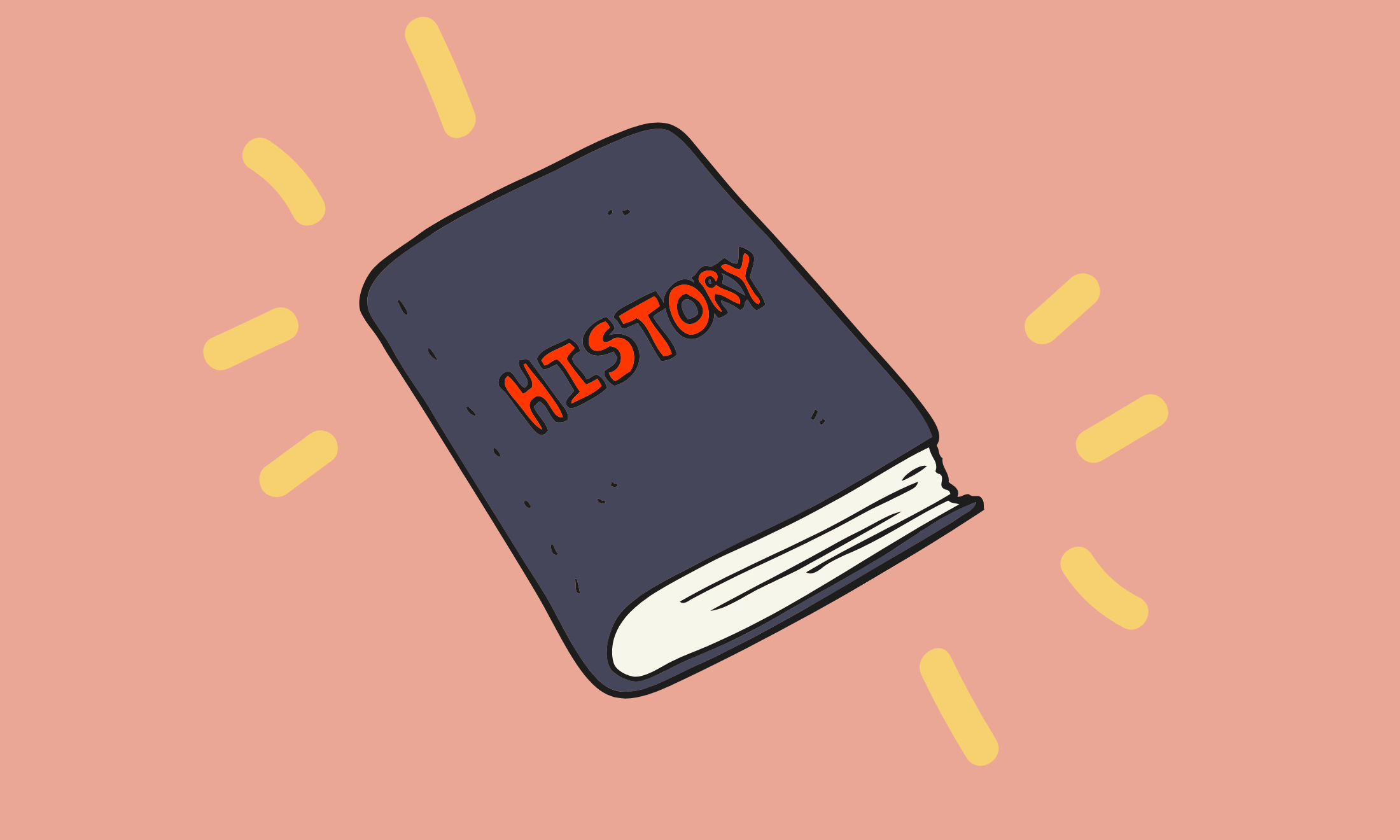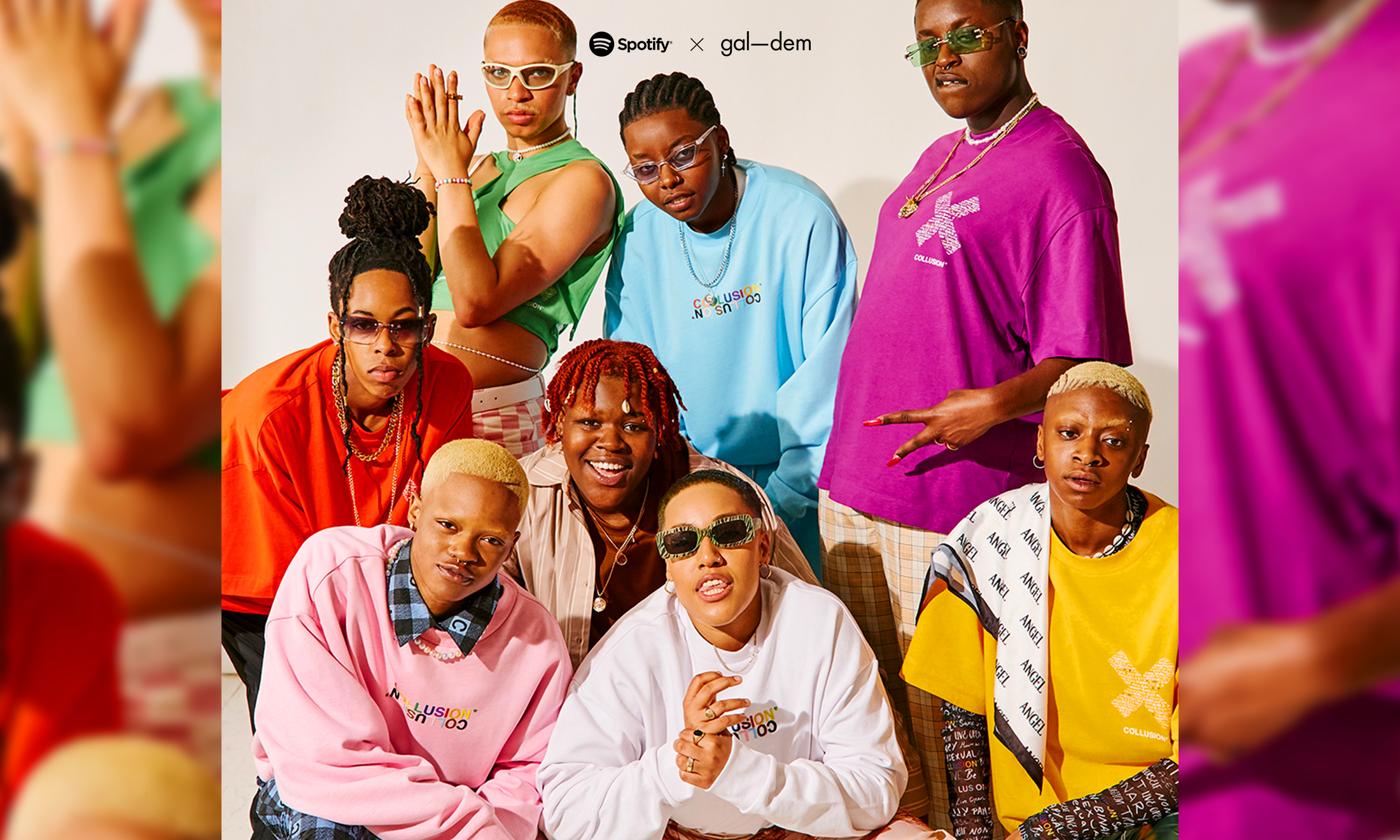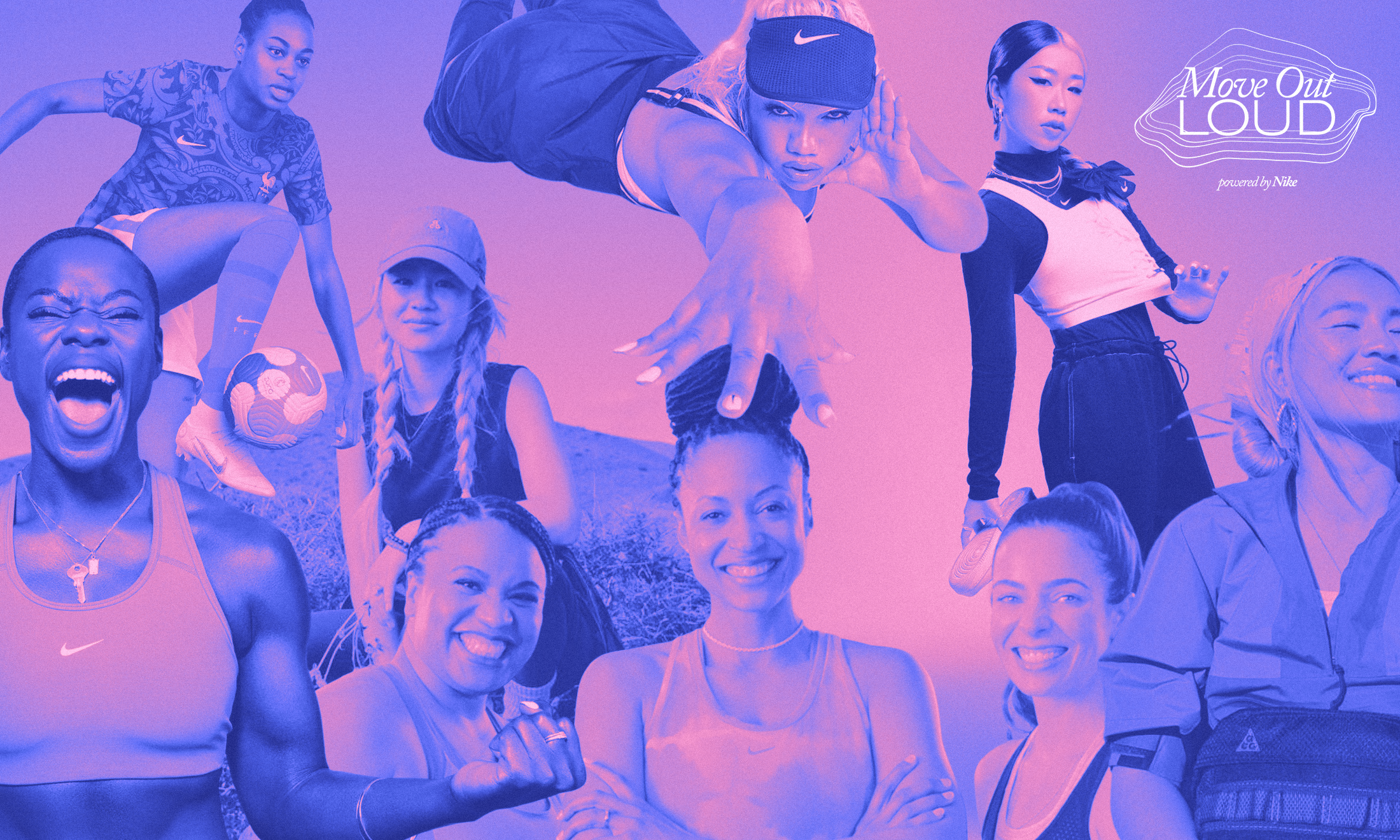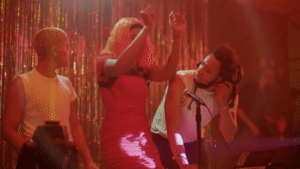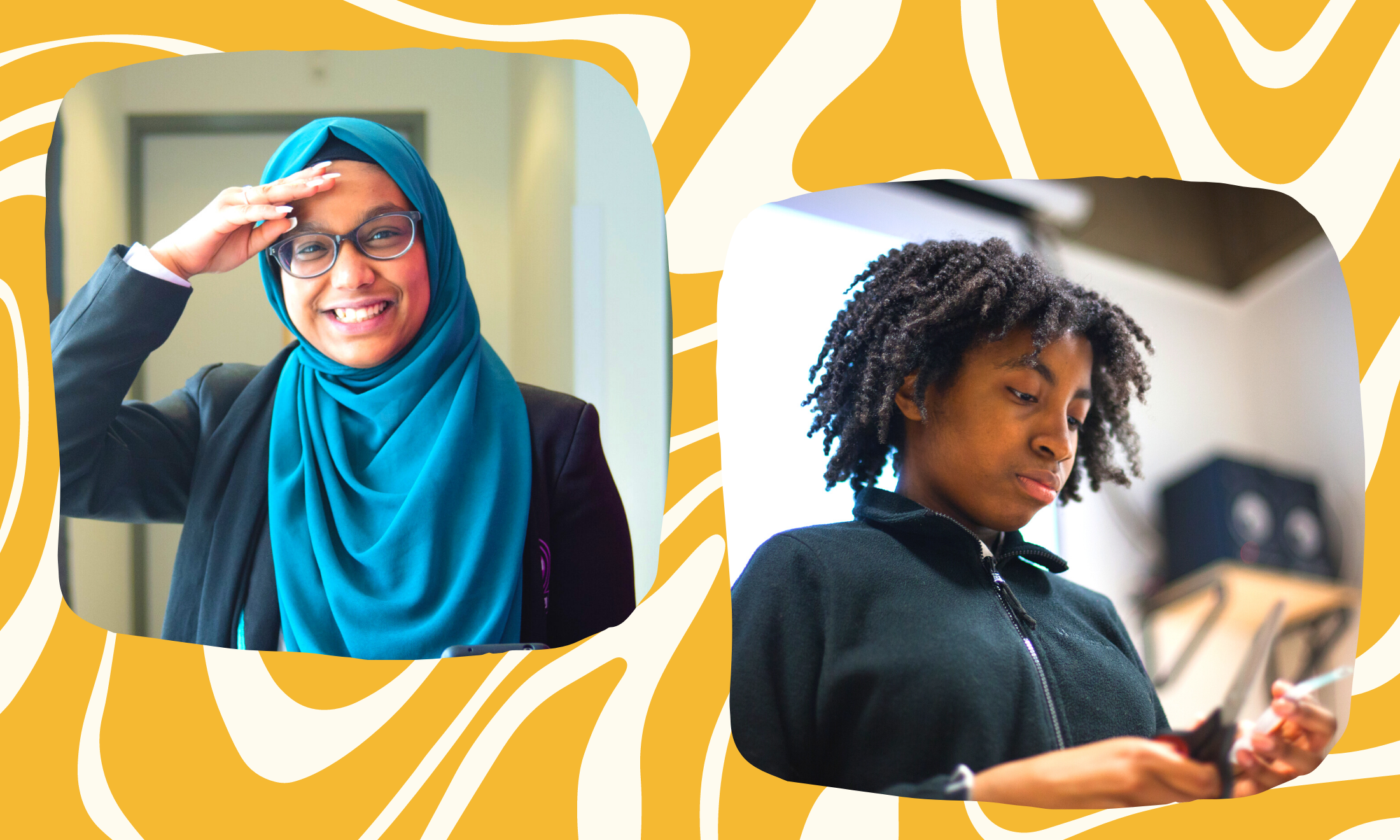
Left image: Sisterhood. Right image: Edi Whitehead / Canva
How Sisterhood is raising a generation of girls to design their own futures
Nurturing creativity and encouraging entrepreneurship is how this social enterprise is changing the face of education.
Riann Phillip
27 May 2022
In partnership with Sisterhood.
“People don’t really ask 14 year olds what they think and feel,” says Rebecca Thomson, one of the co-founders of Sisterhood School CIC. Her organisation seeks to do exactly that, helping young girls and gender-diverse youth design their own futures by thinking and feeling for themselves, and using that agency to express their perspectives. Co-founded in 2015 by Rebecca and Rachita Saraogi, Sisterhood is a creative social enterprise committed to equipping girls aged 13 – 17 with both educational and vocational opportunities and skills.
There are four types of programmes available: the 15 Week Programme, the 1 Year programme, the Sisterhood Summer and the Design Sprints. Each of these programmes offer a variety of learning opportunities, such as masterclasses with industry professionals, design workshops, team-building and professional mentorships. The programme participants learn various skills throughout their Sisterhood journey such as pattern making, creative writing, public speaking or creating business plans. With an emphasis on these creative skills they will learn, they are preparing for the working world by understanding that they are the transferable skills they will need to succeed in the working world today.
As two friends who met at Central Saint Martins studying visual communication and graphic design, Rachita and Rebecca were deeply concerned with the lack of diverse representation in the creative industries and the dearth of opportunities for those graduating without nepotism connections.
“Neither of us had anyone in our family who was actively in the creative industry… We were starting from scratch”
Rachita Saraogi, Sisterhood co-founder
“Where do we find mentors or people who can support and inspire us? Who can we reach out to for potential jobs in, like internships and things like that? Because neither of us had anyone in our family who was actively in the creative industry… We were starting from scratch,” says Rachita, explaining their motivations to start Sisterhood. “Looking around in the industry and we were seeing this drop off of women. Where have they all gone? What talent are we losing? What talent are we already missing out on? And how can we stop that?” Rebecca says.
However, despite a lack of connections being a hurdle, underlying issues of how young people were being educated was the real catalyst for Rachita and Rebecca. Instead of focusing on the end result, Sisterhood uses creative education to concentrate on the process.
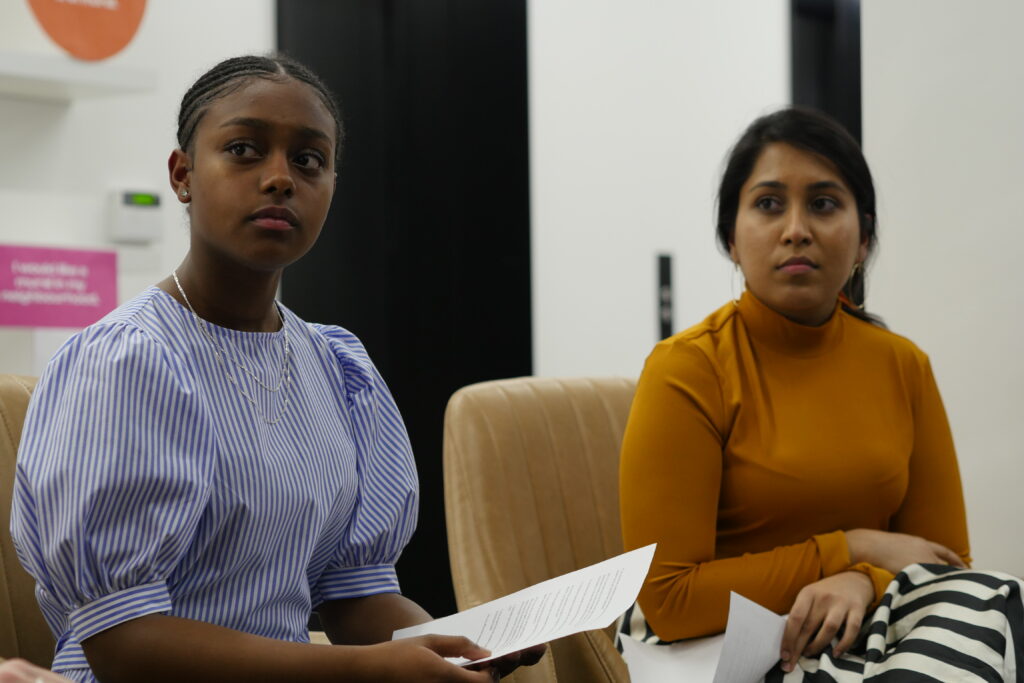
As part of the programme, the participants work in groups of 10 -15 on a ‘Social Impact Project’: a design-based assignment that enables them to put all of the skills they have learnt into practice. Some of the previous projects include poetry anthologies and pop-up bookshops. The social impact projects allow the participants to take creative control of their project whilst working in a team and learning about social issues.
Confidence building is a core tenet of the Sisterhood ethos: by spotlighting personal growth and development, the girls drive their own learning. Sisterhood takes pride in valuing the creative learning journey as opposed to a ‘perfect finished product’.
We spoke to four Sisterhood graduates: Anaya, Ella, Sophia and Hazera about what they learnt in their time at Sisterhood. In the 2019 cohort, Anaya and Ella, both currently 17, both worked on ‘Pop Path’: a proposed collection of street art in various neighbourhoods around London to highlight sexual harassment and gender-based violence.
“I would now be able to stand up for my self. And say, that is not it”
Ella Jiang, Sisterhood graduate
While developing Pop Path, Ella found her voice through delivering presentations as part of a team. The street art project is working collaboratively alongside the local council and professional street artists to create the display on Whalebone Lane in Stratford, London. The Pop Path was put on hold due to the Covid-19 pandemic but plans to install it have since resumed.
It was not only Ella’s confidence in public speaking that bloomed. She also found the courage to call out sexually inappropriate behaviour. “If I see something like that, which we have all experienced, I would now be able to stand up for myself. And to say, that is not it. Now I have the confidence to say it out loud and call it out. And then to change something, hopefully.” Even after her time at Sisterhood, Ella has continued to work on the Pop Path project by pitching to the local council to bid for funding.
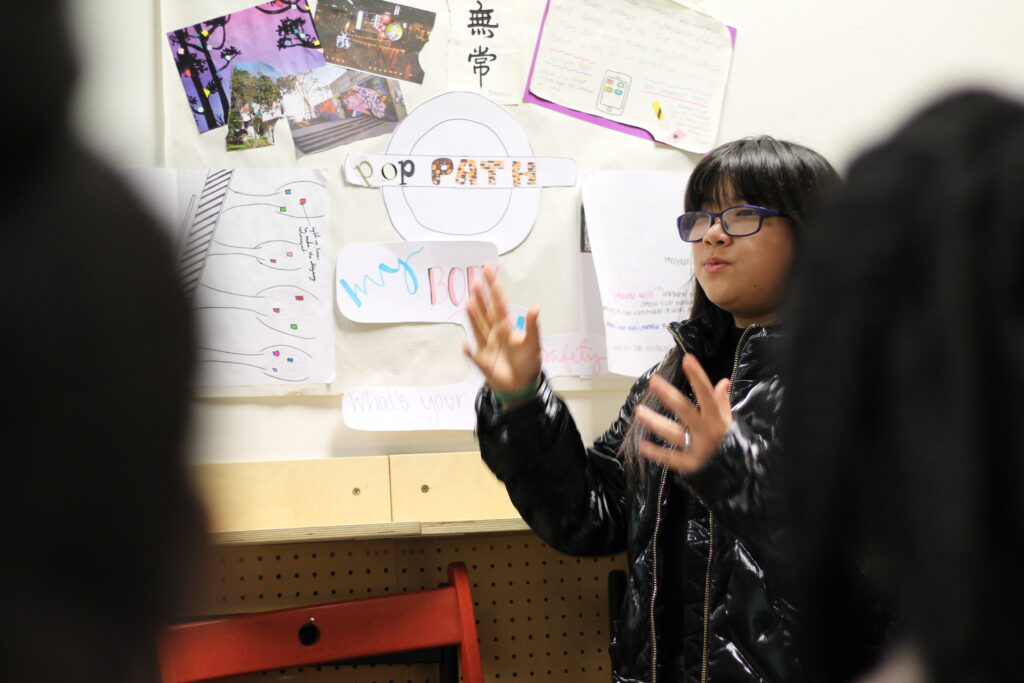
The Pop Path social impact project helped Anaya become more passionate about social issues too. “It’s like I’ve put on a different shade of glasses. Everything’s in colour now. And it’s really bright in front of me,” she says, explaining what Sisterhood has taught her. Despite her time on the programme ending, Anaya is determined to continue her Sisterhood journey, with aspirations of being a social worker and sharing the values of Sisterhood with the next generation.
“I want to let them know that they are worth it. Know yourself, know that as a girl, as whoever you identify as you are appreciated. That is definitely the main message that I’ve got from working with Sisterhood and being a part of a community, I am appreciated.” Sisterhood also helped Anaya with her confidence: “I feel more confident to educate more and more people, not only girls but boys as well, about the importance of including women in everything.”
For 16 year old Hazera, Sisterhood has helped change the way she views herself. “Before I did the project with Sisterhood, I was at a point in my life where I thought of myself in such a bad manner. Sisterhood brought a bit of hope for me, and taught me to love myself,” she says. Hazera was a part of the first cohort to stay with Sisterhood for the entire academic year. She also found a new love for writing poetry – something that she had never really considered before alongside her focus on pursuing a career in medicine. The Sisterhood School is breaking down these binaries and encouraging girls to explore all of their curiosities – why can’t you be a doctor who writes poetry?
“Sisterhood initiated my passion for beauty and our relationship with beauty standards as individuals and the society and the intersectionality of that with race and culture”
Sophia Claremont, Sisterhood graduate
Sophia, 19, has always been interested in activism and charity work, and her time at Sisterhood encouraged her to pursue these passions. “It’s a really good programme to help girls get engaged with gender issues that they may have faced in their lives or they may face later on,” she says.
Currently on her gap year and due to go to university to study English in September, Sophia’s time at Sisterhood allowed her to refine her writing skills, particularly when it comes to looking at the beauty industry and representation. “Sisterhood initiated my passion for beauty and our relationship with beauty standards as individuals and the society and the intersectionality of that with race and culture,” she says. Sophia was a part of the first 15-week programme in 2018 and has championed her role as Sisterhood ambassador ever since.
The future of Sisterhood is prosperous. Many Sisterhood graduates already act as ambassadors for the social enterprise and Rachita and Rebecca hope that they will one day return to the programme as facilitators for future cohorts.
“There are local sisterhoods that already exist and it’s about collaborating with them”
Rachita Saraogi, Sisterhood co-founder
Right now, Sisterhood are exploring how to reach girls who are not in any formal education, and have hopes to work with international women’s groups and create enduring value-based partnerships. “Oftentimes people think when you’re starting somewhere new, you have to start it from scratch,” says Rachita. “But, there are local sisterhoods that already exist and it’s about collaborating with them.”
Their most current endeavour is looking to build a pipeline of future purpose-led entrepreneurs. Talking from experience, Rachita and Rebecca know that creativity and entrepreneurialism go hand in hand and need to be nurtured from a young age. They’ve seen amongst the girls they have worked with, some of them start their own side projects and they want to encourage more girls to flex their creative muscles whilst building their own businesses.
The Sisterhood Summer programme will be taking place from 8-12 August. Applications are now live – find out more and how to apply. You can find out more about Sisterhood here.


